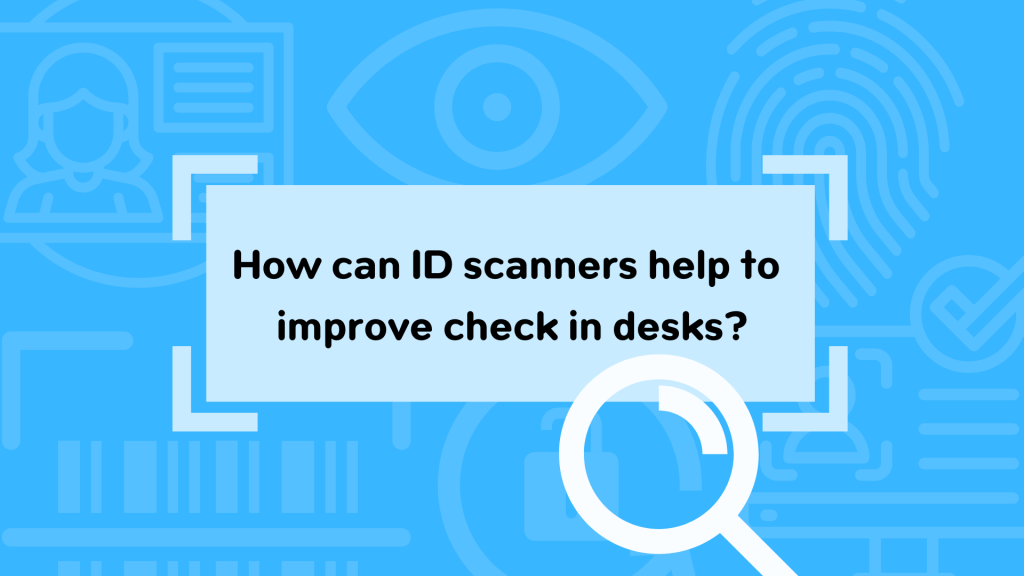In an era where security and efficiency are paramount, ID scanners have emerged as powerful tools in various industries. These devices, designed specifically for identification and verification, are revolutionizing the way businesses operate and interact with customers. In this blog post, we will explore the significant role of ID scanners as standalone products, delving into their capabilities, benefits, and their impact on streamlining processes and enhancing security.
Advanced Identification Verification
ID scanners serve as a stand-alone solution dedicated to swiftly and accurately verifying identification documents. Equipped with sophisticated technology, these scanners can read and extract crucial information from various ID types, including driver’s licenses, passports, and ID cards. By employing optical character recognition (OCR) and barcode scanning, ID scanners can instantly authenticate IDs, ensuring that only valid documents are accepted.
Efficient Workflow Automation
One of the primary advantages of ID scanners is their ability to automate and expedite the identification and verification process. By eliminating manual data entry, these scanners significantly reduce human error and enhance overall efficiency. With a simple scan or swipe, relevant information is extracted, populating digital forms and databases in seconds. This automation frees up time for employees, enabling them to focus on more important tasks, ultimately improving productivity.
Heightened Security Measures
Security breaches and identity theft are ever-present concerns for businesses. ID scanners play a pivotal role in enhancing security by providing real-time authentication of identification documents. With advanced features like UV light detection, hologram recognition, and magnetic stripe reading, these scanners offer multiple layers of security, thwarting counterfeit IDs and fraudulent activities. By incorporating such technology, businesses can minimize risks and maintain a secure environment for their customers and employees.
Compliance with Regulations
Numerous industries are subject to strict regulations pertaining to identification. ID scanners simplify compliance efforts by automatically capturing and storing necessary data. This data can be easily retrieved and shared with authorities when required, ensuring adherence to legal obligations. By utilizing ID scanners as standalone products, businesses can confidently navigate regulatory frameworks while mitigating potential fines or penalties.
Versatility and Integration
ID scanners are designed to integrate seamlessly with existing systems and workflows, making them a versatile solution for various industries. Whether in retail, hospitality, healthcare, or banking, these scanners can be tailored to specific needs, offering compatibility with different software applications and databases. Integration capabilities enable businesses to consolidate data, streamline operations, and enhance overall information management.
Improved Customer Experience
Efficiency and convenience are key factors in delivering a positive customer experience. ID scanners streamline the check-in process, allowing guests to swiftly provide their identification and complete the necessary procedures. By reducing waiting times and eliminating manual paperwork, customers can enjoy a seamless and hassle-free experience, setting a positive tone. Additionally, the heightened security provided by ID scanners instills a sense of confidence and trust in customers, further enhancing their overall experience.
Analytics and Insights
Beyond identification verification, ID scanners also provide valuable data that can be utilized for analytics and business insights. By analyzing collected data, businesses can identify trends, optimize processes, and make informed decisions. Information such as customer demographics, visit frequency, and preferences can be leveraged to personalize experiences, tailor marketing campaigns, and drive customer loyalty.
ID scanners in healthcare
As we have quite an experience in working with healthcare facilities, we see that ID scanners can be especially useful in hospitals and such. Apart from the points already mentioned above, ID scanners can integrate with electronic health record (EHR) systems, allowing for seamless transfer of patient information. This integration enables hospital staff to access the patient’s medical history, allergies, and other pertinent data directly from the scanned ID. It enhances the accuracy of information retrieval and ensures that healthcare professionals have access to critical information at the point of care, leading to more efficient and informed decision-making.
Additionally, ID scanners can assist in identifying patients accurately, especially in scenarios where patients may be unable to communicate their personal information due to emergencies or other medical conditions. By scanning their IDs, hospital staff can quickly retrieve necessary details, enabling the provision of timely and appropriate care.
DESKO PENTA Scanner® for ID identification
As standalone products, ID scanners have revolutionized identification processes across multiple industries. Their ability to swiftly authenticate IDs, automate workflows, enhance security, ensure compliance, and provide valuable data insights makes them indispensable tools for businesses. By embracing this advanced technology, organizations can streamline operations, improve efficiency, and instill confidence in their customers. As the digital landscape continues to evolve, we can expect further innovations in ID scanning solutions, propelling industries towards even greater levels of security and efficiency.
To discuss self-service solution possibilities for your business, please get in touch with us today, and one of our team members will be more than happy to advise you!





